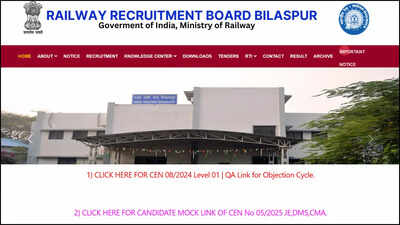When the degree stops delivering: Why US graduates are entering the harshest job market in a decade

For decades, a college degree symbolised upward mobility, the long-assumed passport to a stable, well-paying career. Yet more than three million graduates stepping into the workforce this year have collided with a labour market that is arguably the bleakest in a decade. And, as multiple indicators show, 2026 may deliver an even harsher reckoning.According to reporting by CNBC, the convergence of an AI-driven restructuring wave, persistent inflation, and a slowdown in consumer spending has created a perfect storm for young workers. Large employers, chasing efficiency and margin preservation, openly admit to replacing human labour with artificial intelligence systems designed to streamline operations.
Hiring outlook darkens as AI rewrites the rules
A new report by the National Association of Colleges and Employers (NACE) reveals the depth of this downturn. Roughly 51% of employers rated the job market for the Class of 2025 as “poor” or “fair,” the worst sentiment since the 2020–21 pandemic cycle (NACE data cited by CNBC).Meanwhile, corporate America has announced 1.1 million job cuts so far this year, a staggering 65% increase from the previous year, according to outplacement firm Challenger, Gray & Christmas. Much of this carnage stems from the technology sector, which is undergoing mass restructuring as companies absorb AI into core functions.Industries such as tech and finance, Indeed reports, are particularly vulnerable because generative AI now performs analytical tasks once reserved for trained human minds. By contrast, roles in nursing, manufacturing, and construction remain more resistant, jobs that, for now, AI cannot replicate.The Federal Reserve Bank of Philadelphia reinforces this concern: Higher-paying positions that traditionally required a bachelor’s degree are more susceptible to AI displacement (CNBC report citing Philadelphia Fed).
Fewer applications converting into jobs
The statistical fallout is stark. Although the Class of 2025 submitted more applications than its 2024 predecessors, they received fewer job offers, NACE found.In a separate employability report by Cengage Group, only 30% of 2025 graduates have secured full-time jobs in their fields, down from 41% in the previous class.The pipeline is not merely narrowing, it is collapsing.
Career offices on the frontlines of anxiety
At Gettysburg College in Pennsylvania, the shift is palpable. James Duffy, assistant vice president for co-curricular education, told CNBC that long-standing employers skipped this year’s job expo without explanation.But the underlying cause, he said, is clear: AI has devoured many of the entry-level roles once considered automatic landing spots for graduates.Career centres, already stretched thin, must now reinvent themselves in real time. The stakes are high: rising tuition fees, mounting student-loan burdens, and a growing national scepticism about the value of higher education.A study by EdAssist by Bright Horizons, cited by CNBC, shows 77% of borrowers consider their student debt a “huge burden,” while 63% say their education has not justified its emotional and financial cost. The ultimate nightmare scenario for families and for colleges is taking on debt and graduating jobless.
The new imperative: Education must meet industry, not parallel it
In July, the City University of New York (CUNY) launched a sweeping overhaul aimed at improving outcomes for 180,000 undergraduates. As CNBC reports, CUNY is embedding career-connected advising, paid internships, and industry partnerships into every academic field, an acknowledgment that the era of education existing apart from employment realities is over.The message across academia is unmistakable:
- A degree alone no longer guarantees a foothold in the labour market.
- A generation on the edge of reinvention
The Class of 2025 stands at an uneasy intersection: Graduating into an economy remade by algorithms, entering industries recalibrating their workforces, and navigating a national debate over whether higher education still delivers on its promise.But the crisis also forces a reckoning, not only for students, but for employers and universities alike. If AI is the great disruptor of this decade, human adaptability must become the defining skill of the next.For now, the graduating class is left confronting a future more uncertain, more unforgiving, and more transformative than any cohort in recent memory.






